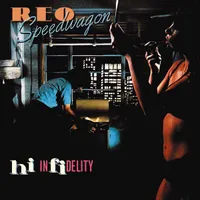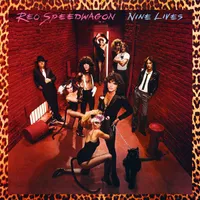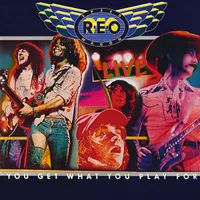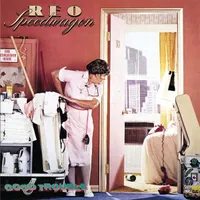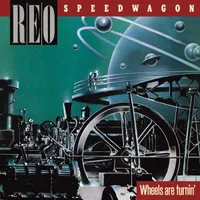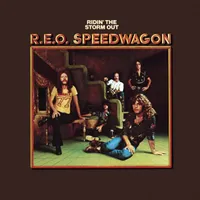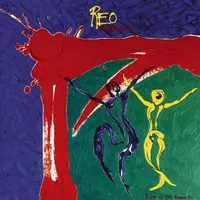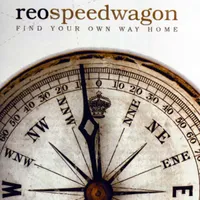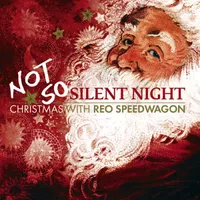Giants from the golden age of AOR: The REO Speedwagon albums you should definitely listen to
Illinois rockers REO Speedwagon sold millions of records, with hits that have gone down in power ballad history - and these are their best albums
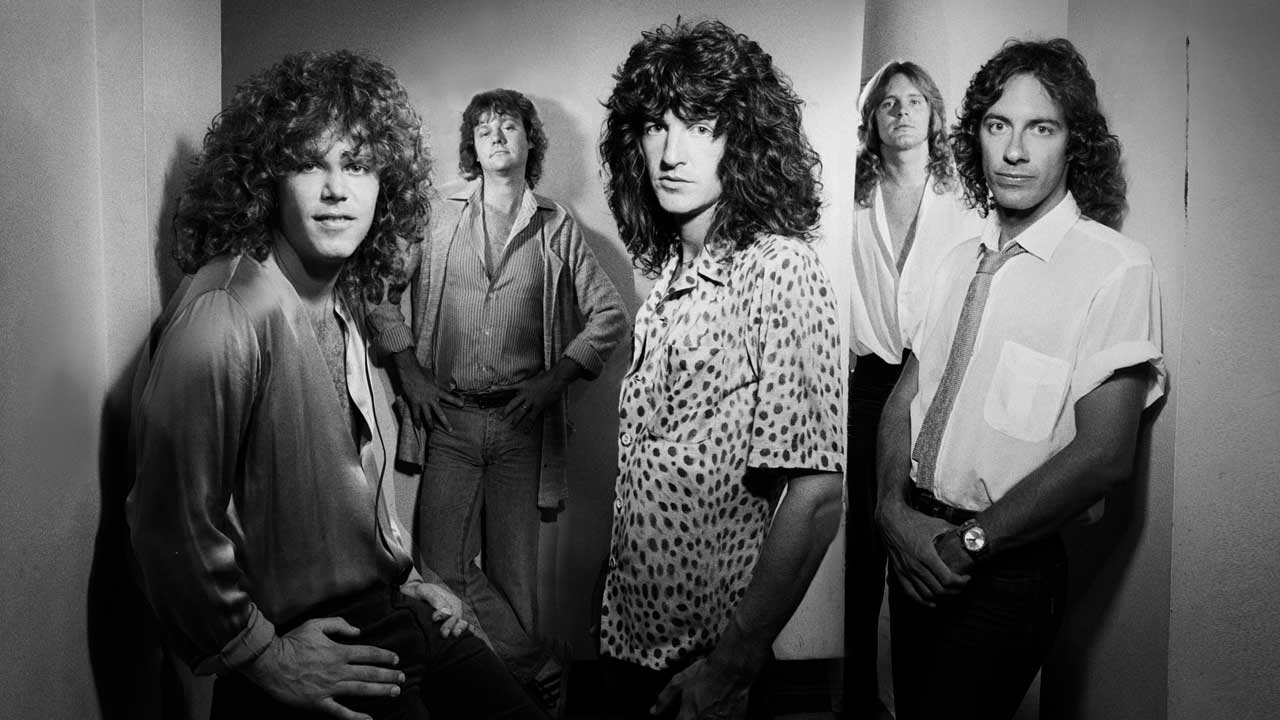
In 1981, the loudest band in the world scored a momentous victory. Motörhead topped the UK album chart with No Sleep ’til Hammersmith. But on the other side of the Atlantic, a more refined form of rock music dominated. It was the golden age of Adult Oriented Rock, and among the albums that hit No.1 in America that year were Journey’s Escape, Foreigner’s 4, Pat Benatar’s Precious Time, Paradise Theater by Styx, and the biggest of them all, holding the top spot for 15 weeks (released November 1980), REO Speedwagon’s Hi Infidelity.
Success was a long time coming for REO Speedwagon. The band was formed way back in 1967 in Champaign, Illinois, and named by keyboard player Neal Doughty after a vintage delivery truck. The debut album – confusingly titled R.E.O. Speedwagon – was released in 1971, with Doughty and drummer Alan Gratzer the only remaining founder members, plus Gary Richrath on guitar, Greg Philbin on bass and Terry Luttrell as lead singer. Even more confusing were the line-up changes that followed.
The second album, R.E.O./T.W.O., featured a new singer in Kevin Cronin, but after blowing his voice out on tour, Cronin was replaced by Mike Murphy for 1973’s Ridin’ The Storm Out. It was only after two more albums with Murphy, both of which tanked, that Cronin was reinstated. And from that point, it was he and Richrath who steered REO to glory.
Hi Infidelity was the career-defining album, with Cronin’s Keep On Loving You a No.1 single, and Richrath’s Take It On The Run another smash hit. Cronin repeated the trick in 1985 with the ballad Can’t Fight This Feeling. But the good times could not last forever. The hits dried up soon after Gratzer left the group in 1988, and Richrath a year later.
Ever since, REO’s line-up has remained unchanged, with Cronin, Doughty and bassist Bruce Hall, present since 1977, alongside guitarist Dave Amato and aptly named drummer Bryan Hitt.
There is a sad postscript to their story: the death of Gary Richrath on September 13, 2015. Two days later, Cronin began an REO concert with a eulogy, but as he recalled: “It struck me that Gary was up there somewhere, and he’d be looking down at me saying, ‘Cronin, shut up, and rock these people!’” It was both poignant and funny: a fitting tribute from Cronin to the man with whom he had created so much great music.

With more than ten million copies sold in the US alone, Hi Infidelity is REO’s biggest album, and their best. More than that, it is a timeless AOR classic. Its success came from two of the most embittered love songs ever written. In the sweet-sounding power ballad Keep On Loving You, a million-selling US No.1, Cronin compared an ex to a snake, ‘all coiled up and hissin’’.
The other big hit, Take It On The Run, also delivered, with a pretty melody, an emphatic fuck-you. The album had more great tracks like rock’n’roll shakedown Don’t Let Him Go. But it was in those two deceptively vitriolic songs that REO, and AOR, were perfectly defined.
Richrath set the tone for Nine Lives, the band’s ninth album, with a simple remit. “Gary felt that we should rock a little harder,” Cronin said. The guitarist got what he wanted. On this album, they played it tough. And while this approach did not translate into hit singles, it did make for a smokin’ hard rock record.
Heavy On Your Love is the most badass song REO ever recorded. The momentum carries through riff-based tracks such as Only The Strong Survive and Take Me. And to finish, there is Back On The Road Again, an REO anthem, written and sung by bassist Bruce Hall and lit up by Richrath’s guitar heroics.
Live: You Get What You Play For (Epic, 1977)
When Kevin Cronin returned to the band in 1976, after four years away, the resulting studio album had a title – R.E.O. – signifying rebirth. As it turned out, that album bombed, but the next, an in-concert double, had a bigger impact. This was REO’s first great record and a defining statement, establishing Cronin as the true voice of REO.
Amid much boogie rock – the default setting in the band’s early days – it was his new songs, such as Keep Pushin’, that pointed to the future. And with Ridin’ The Storm Out, a great singer took a great song to a whole new level.
You Can Tune A Piano, But You Can’t Tuna Fish (Epic, 1978)
It was while suffering a hangover that Cronin came up with the name for REO’s breakthrough album, the first to make the US Top 30. But as the singer explained: “Joe Walsh had called his record The Smoker You Drink, The Player You Get. So the stage was set for wacky album titles.”
In reality, it was no laughing matter. For a band in desperate need of a hit, this album saved their career. And its two singles both became REO standards: Roll With The Changes, a soulful heavy rock number, and Time For Me To Fly, a bittersweet kiss-off to Cronin’s first love.
Context is everything. Good Trouble, the follow-up to the all-conquering Hi Infidelity, has always suffered by comparison. It sold two million, yet it remains REO’s most underrated record.
Keep The Fire Burnin’, the album’s lead single and only major hit, crackles with positive energy. The title track is as heavy as anything on Nine Lives. The Key has Cronin getting existential and Doughty tinkling away like he’s in Lynyrd Skynyrd. And best of all, there is I’ll Follow You, a tale of a mysterious Cajun beauty, delivered with a dramatic intensity reminiscent of The E Street Band in full cry.
Wheels Are Turnin’ (Epic, 1984)
The early signs were not good. I Do’ Wanna Know, the rollicking first single from Wheels Are Turnin’, was considered a flop when it peaked at No.29 in the US. But with the second single, REO had their biggest ever hit. Can’t Fight This Feeling was the No.1 song in America for three weeks in 1985, and more than 30 years later it stands tall as one of the all-time great power ballads.
The album had its weak spots – not least the flimsy Break His Spell. But in Live Every Moment, a song radiating good vibes, and in Can’t Fight This Feeling, REO again demonstrated a mastery of high-class melodic rock.
Ridin’ The Storm Out (Epic, 1973)
In the early 70s, REO had an identity crisis. Three different lead vocalists featured, in turn, over six albums. It was a turbulent time, crystallized in an album that was begun with one singer and completed with another. Kevin Cronin, his voice shot after a long tour, was fired during the recording of Ridin’ The Storm Out.
His replacement, Mike Murphy, cut new vocal parts, and as Cronin later recalled: “The album cover was already done, so they airbrushed me out and put Murphy in.” While Murphy lacked Cronin’s class, the album was REO’s strongest from that period. Its dramatic title track is still a fixture in the band’s live set
Life As We Know It (Epic, 1987)
There was a certain irony in its title. Life As We Know It marked the end of an era for REO, the band’s last album with Richrath and Gratzer, and the last to make the US Top 40. In one sense this was business as usual.
The album’s two best tracks, both Top 20 hits, proved that Cronin, as a writer and singer, was still operating at a high level: That Ain’t Love a quintessentially 80s AOR anthem, In My Dreams a perfectly crafted ballad. But the discord within the group was revealed in One Too Many Girlfriends, in which Cronin aimed thinly veiled insults at Richrath. It was many years before they were reconciled.
Find Your Own Way Home (Speedwagon Recordings / Mailboat, 2007)
In 2015, Cronin told Classic Rock: “I’m still writing some pretty cool stuff. I imagine we’ll do another record at some time.” As it stands, it is now 17 years since the band’s last original album.
Find Your Own Way Home did not chart in the US, let alone the UK, but in its best songs were echoes of past glories: Smilin’ In The End was a rowdy rock number, while the title track mixed AOR with a touch of Nashville, and I Needed To Fall was a brilliant modern power ballad. This album would have been a good way for REO to sign off. If only they hadn’t followed it with a silly Christmas record.
...and one to avoid
You can trust Louder
Not So Silent Night… Christmas With REO Speedwagon (Sony/Legacy, 2009)
As Christmas gifts go, it was worse than socks. There are some great festive songs by rock bands – from Slade to The Darkness – but REO did not have one of their own.
Instead, they reworked a bunch of traditional yuletide standards and added a ghastly version of John and Yoko’s Happy Xmas (War Is Over). Winter Wonderland was played as a Quo-style boogie shuffle, and God Rest Ye, Merry Gentleman given an AOR makeover. This album was, of course, supposed to be a bit of fun. In reality, it was anything but.
Sign up below to get the latest from Classic Rock, plus exclusive special offers, direct to your inbox!
Freelance writer for Classic Rock since 2005, Paul Elliott has worked for leading music titles since 1985, including Sounds, Kerrang!, MOJO and Q. He is the author of several books including the first biography of Guns N’ Roses and the autobiography of bodyguard-to-the-stars Danny Francis. He has written liner notes for classic album reissues by artists such as Def Leppard, Thin Lizzy and Kiss, and currently works as content editor for Total Guitar. He lives in Bath - of which David Coverdale recently said: “How very Roman of you!”
